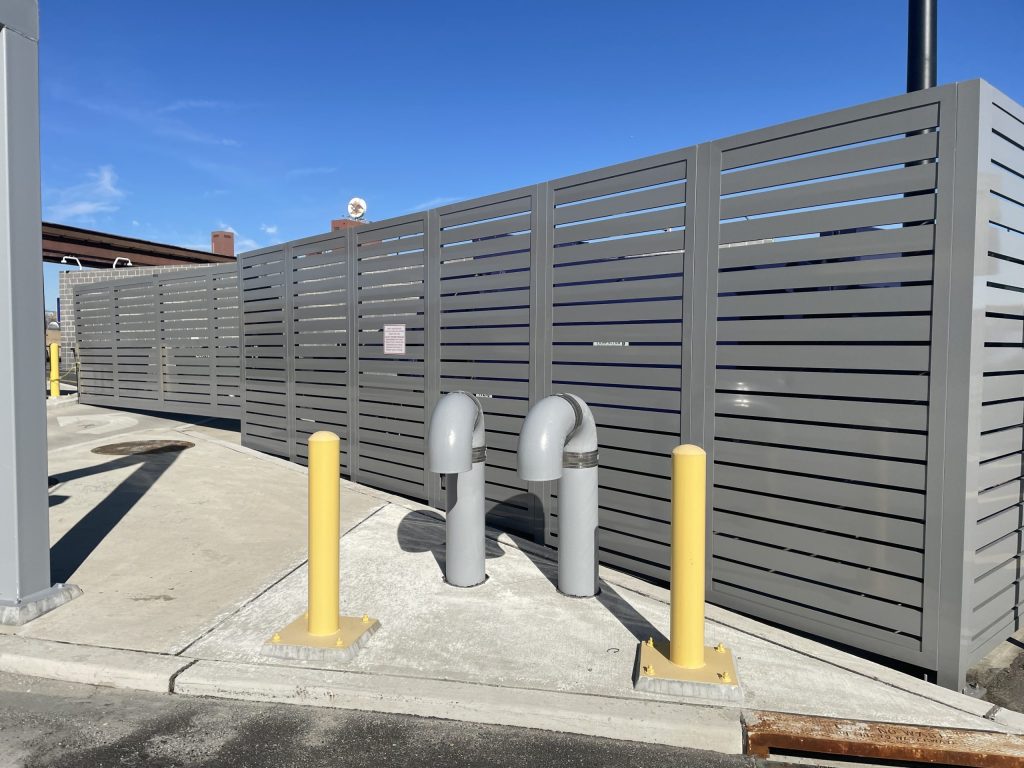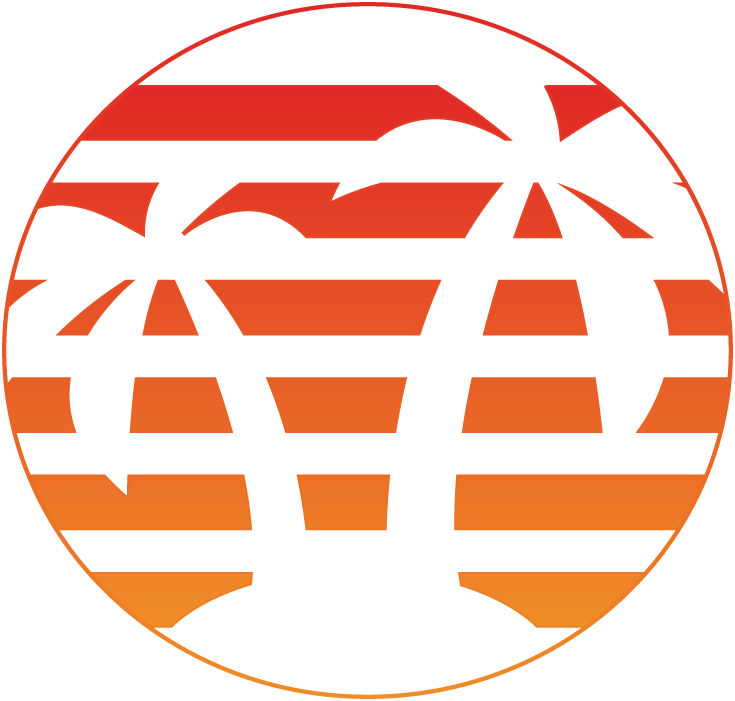What are the Advantages of Custom-Made Screening Enclosures?

As a customer researching mechanical equipment screen solutions, you’re naturally asking what constitutes the better choice: a contractor that sells pre-designed, ready-made screening, or one that makes everything custom from the design phase to the finished product? It’s a perfectly legitimate question, and one we’re delighted to answer. Ever since our founding in 2002, PalmSHIELD has stressed quality and client satisfaction, and we recognized the best way to accomplish both was to make everything custom. In this article, we’ll get into the nuts and bolts as to why.
What are the disadvantages of ready-made screening?
Let’s start by addressing ready-made screens. To be sure, this option promises a quicker turnaround time from order to delivery. Everything’s designed and built according to an existing set of parameters (with no customer input); at this point, it’s a simple matter of calculating the amount of panels needed for your particular job. The trade-off, of course, is that there are no customization options whatsoever. How is this a problem? Allow us to explain.
- No guarantee of fully enclosing the needed space. When you order pre-made panels, the size of the panels—each and every one of them—is already determined, and this isn’t always feasible. It’s acceptable when your enclosure’s to be set up in wide, open space, wherein space compromised by nearby structures, landforms, water hazards, and property lines are not a factor. If any of these obstacles do apply to your installation site, you’ll likely have to compromise your enclosure’s size (usually making it smaller than planned); otherwise, you’ll cross boundaries or experience gaps.
- Limited ability to visually complement backgrounds. Property owners don’t want eye sores on their property. Eye sores sometimes consist of ready-made screens that—while appealing on their own or when set among similarly colored backgrounds—clash horrifically against surrounding structures. For example, gray mechanical equipment screens will fulfill their function (obscuring dumpsters, HVACs, etc.) but stand out against buildings with colorful exteriors.
- Difficulty with the right angles for obscuring mechanical equipment. One of the many developments in the architectural industry nationwide is ordinances requiring mechanical equipment (be it ground or rooftop-mounted) to be hidden from public view. Progressive communities nowadays stress visual cleanliness, and look down on HVACs, transformers, dumpsters, etc. standing out in plain view. At the same time, many of these fixtures need proper ventilation for the sake of air quality, preventing smoke hazards, and maintaining smooth operation.
So: you need screening that can achieve both, and this can be difficult with premade screens. Especially if the equipment is situated on the roof and you need to figure out the right angle so nothing’s visible from the street. With premade screens featuring ventilation-providing infill, you have to luck out—hoping the angle of the infill maintains airflow while meeting the angle required.
As we can see, premade equipment screens come with some benefits and advantages (quicker shipping, for one, since nothing needs to be made from scratch), but you’re ultimately dependent upon luck: that the contactor you pick offers panels of a size that, when put together, doesn’t compromise space; also that it produces the necessary amount of airflow and visibility.
Check out this video of our HAAS Mini Mill in action. The mill constructs our Gorilla Hinges, which are integral to our screening gates’ strength and dependability!
How custom-made screens benefit property owners
Mechanical equipment screens that are custom-made require more time to be made (as they’re first designed and then put together) but ultimately play in your favor. For a longer wait, you’ll receive professionally crafted panels that’ll steer clear of the disadvantages mentioned above and serve you for decades to come. As we mentioned before, PalmSHIELD custom-manufactures all its products, which yields the following advantages:
- No issues with compromised space. When you hire PalmSHIELD, we start by requesting measurements of your project installation site. Our team of expert CAD designers will use that information to create drawings for your screens. Everything’s tailored to your spatial needs. You won’t receive your shipment and find out the final panel’s either too long or too short to seal off the job site.
- Numerous design options. PalmSHIELD doesn’t limit design choices to generic gray. Our team partners with IronShield Coating, whose powder coating technology allows us to color your panels to match building exteriors. What’s more, we offer screens with unique visual appeal, such as our LED Backlit Laser Cut panels. These are perfect for screening off dumpsters at museums, art galleries, etc., because they draw the eye while obscuring items as necessary. The trellis option’s great for scenic areas without heat hazards. Architectural open screens are perfect when ventilation matters more than visual seclusion.
- Scoring the right angle for visually obscuring equipment. PalmSHIELD’s signature infill option (though we have numerous choices to pick from) is louvers, which are set at whatever angle’s best for your situation. We inquire the details regarding where your screens will be installed and the angle at which the louvers must be installed to obscure the items in question from public view.
The fabrication staff at PalmSHIELD works out of a massive state-of-the-art facility stocked with cutting-edge machines and technology. This includes a plasma table, an S1800 CNC Drill & Tap Machine, and a HAAS Mini Mill. Every member of the fabrication team is rigorously trained, providing them with the expertise and experience needed to build equipment screens of the highest caliber. Contact the sales team today to discuss prestige screening for your project.
